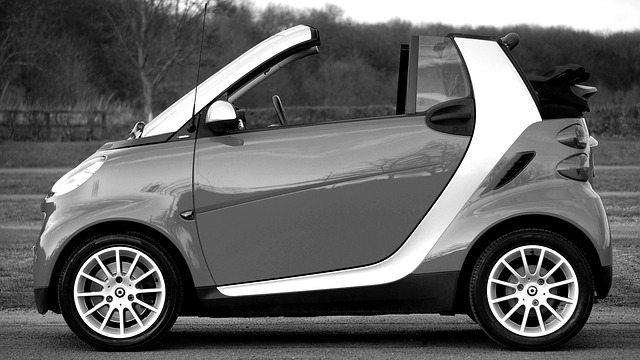In today's digital age, the automotive industry is transforming with Select Smart Car Tech, integrating advanced virtual assistants that enhance driver safety and convenience. This technology includes real-time performance tracking, blind spot detection, and smart parking assistance, promising improved road safety and a stress-free driving experience. Key features like customizable instrument clusters, advanced immobilizer systems, and voice control capabilities streamline daily routines while keeping crucial information accessible. As Select Smart Car Tech evolves, it will revolutionize driving with enhanced ADAS, personalized profiles, and smart city integration, shaping a future of safer, more efficient roads – despite challenges in system robustness, user privacy, and standardization.
In today’s fast-paced world, the need for innovative solutions in driving has never been more apparent. The integration of virtual assistant technology into smart cars offers a promising avenue for enhancing safety and convenience on the roads. This article explores the emerging role of virtual assistants in modern driving, delving into the benefits of select smart car tech, key features, impacts on user experience, and future prospects, challenging us to navigate an exciting automotive landscape.
- Understanding the Need for Virtual Assistants in Modern Driving
- Benefits of Integrating Smart Car Technology
- Key Features of a Comprehensive Virtual Assistant System
- The Impact on Safety and Convenience
- Future Prospects and Challenges in Auto-Pilot Virtual Assistance
Understanding the Need for Virtual Assistants in Modern Driving

In today’s digital era, the automotive industry is undergoing a significant transformation with the integration of smart car tech. As driving becomes more reliant on advanced systems, the need for virtual assistants has become crucial. These assistants act as an extension of the driver’s capabilities, enhancing safety and convenience. By leveraging technology like speech recognition, drivers can maintain focus on the road while still accessing essential features and information.
The demand for these solutions is driven by the desire for real-time performance tracking, blind spot detection sensors, and smart parking assistance. Virtual assistants offer a hands-free experience, allowing drivers to communicate with their vehicles seamlessly. This evolution in car technology promises not just convenience but also improved road safety, making driving an even more enjoyable and stress-free experience.
Benefits of Integrating Smart Car Technology

Integrating smart car technology offers a myriad of benefits that enhance both safety and convenience for drivers. One of the standout advantages is the ability to customize instrument clusters, tailoring them to individual preferences. This customization goes beyond aesthetics; it includes adjusting display layouts, data fields, and even accessing real-time traffic updates. By seamlessly integrating these features, drivers can stay informed and in control, ensuring a safer and more efficient driving experience.
Additionally, smart car technology bolsters vehicle security enhancements through advanced immobilizer systems that deter theft. These systems, coupled with mobile app synchronization, allow owners to lock/unlock their vehicles remotely, set up no-entry zones, and monitor suspicious activities. Further, vehicle diagnostics monitoring via these apps provides early warnings about maintenance needs, boosting overall vehicle health and reliability.
Key Features of a Comprehensive Virtual Assistant System

A comprehensive virtual assistant system for driving should offer a suite of features designed to enhance safety, convenience, and overall driving experience. At its core, such an AI-driven companion leverages advanced driver assistance systems (ADAS) like lane departure warnings, ensuring drivers stay on course. By integrating with the car’s sensors, it can detect potential hazards and provide real-time alerts, minimizing the risk of accidents.
Moreover, a sophisticated virtual assistant should facilitate mobile app synchronization, allowing drivers to connect their smartphones for seamless access to music, navigation, and vehicle diagnostics monitoring. This synchronization not only streamlines daily routines but also keeps crucial information within easy reach. Additionally, these systems often include voice control capabilities, enabling drivers to interact hands-free, enhancing safety during navigation or communication while on the road.
The Impact on Safety and Convenience

The introduction of virtual assistants for driving has significantly enhanced both safety and convenience on the roads. By leveraging advanced smart car tech, these assistants can detect potential hazards and provide real-time warnings to drivers, reducing the risk of accidents. Features like collision avoidance systems, coupled with smart city integration, ensure that vehicles are not only safer but also more in tune with their surroundings, from traffic signals to pedestrian crossings.
Personalized driver profiles further elevate the experience by tailoring assistance to individual preferences and driving behaviors. This level of customization improves comfort and efficiency, allowing drivers to focus on the road while their virtual assistant manages routine tasks such as navigation and entertainment. As smart car technology continues to evolve, these features promise a future where driving is not just safer but also more enjoyable and less stressful.
Future Prospects and Challenges in Auto-Pilot Virtual Assistance

The future of virtual assistance for driving looks promising, with advancements in auto-pilot technology promising safer and more efficient roads. As Select Smart Car Tech continues to evolve, we can expect seamless integration with existing infotainment systems, enhancing driver experience through voice commands and personalized settings. The challenge lies in ensuring these systems are robust enough to handle complex driving scenarios while maintaining user privacy and security.
Smart city integration presents another exciting prospect, where vehicles communicate with their surroundings, optimizing traffic flow and reducing congestion. Home charging setups could also be streamlined, allowing drivers to manage energy consumption and benefit from cost savings. However, challenges remain in standardizing communication protocols between different car manufacturers and infrastructure providers, as well as addressing public concerns about the reliability and safety of fully autonomous vehicles.
The integration of virtual assistant technology into driving systems, powered by advanced Smart Car tech, presents a promising future for enhanced safety and convenience on the roads. As we navigate the evolving landscape of autonomous vehicles, further development and refinement are necessary to address challenges related to reliability, regulation, and public acceptance. Nevertheless, the benefits outlined in this article highlight the potential for virtual assistants to revolutionize driving experiences, making them an indispensable component of modern mobility.
